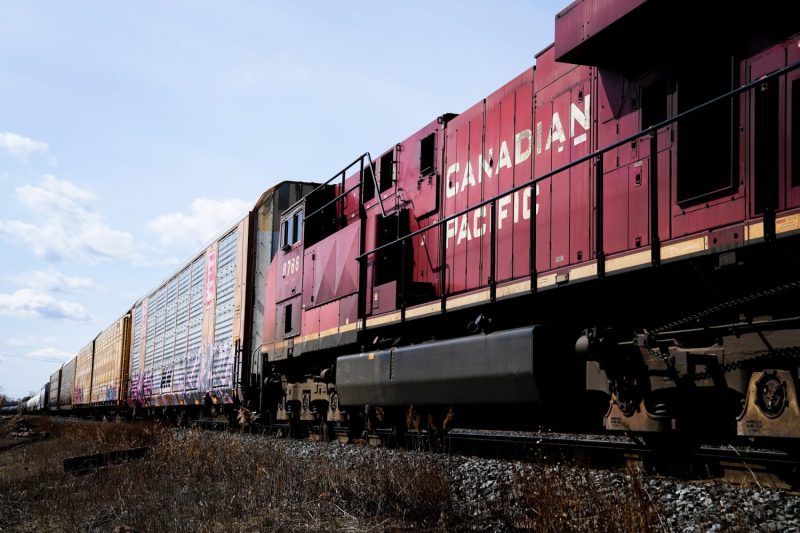Possible Work Stoppage at Canada’s Two Largest Railroads Could Disrupt U.S. Supply Chain
The looming threat of a work stoppage at Canada’s two largest railroads, Canadian National Railway (CN) and Canadian Pacific Railway (CP), has put the U.S. supply chain on edge. As the two rail giants negotiate with their respective unions over issues such as wages, benefits, and working conditions, the possibility of a strike or lockout could have far-reaching consequences for businesses on both sides of the border.
A disruption in rail service at CN and CP would not only impact Canadian industries but also have a ripple effect on U.S. businesses that rely on these railroads for transporting goods across North America. The interconnected nature of the North American supply chain means that any disruption in Canada’s rail network could lead to delays in deliveries, increased costs, and logistical challenges for American companies.
One of the key concerns for U.S. businesses is the potential delay in receiving essential goods and raw materials if the railroads come to a standstill. Both CN and CP play a crucial role in transporting a wide range of products, including agricultural commodities, manufactured goods, and energy resources, between Canada and the U.S. Any disruption in their operations could lead to shortages, production slowdowns, and increased prices for consumers.
Furthermore, a work stoppage at CN and CP could also impact the transportation of finished goods from U.S. manufacturers to Canadian markets. Many American companies rely on the efficient and reliable rail service provided by the Canadian railroads to export their products to Canada. A disruption in this transportation link could result in lost sales, damaged relationships with Canadian customers, and a competitive disadvantage for U.S. exporters.
The uncertainty surrounding the labor negotiations at CN and CP has prompted U.S. businesses to review their contingency plans and explore alternative transportation options. Some companies are considering rerouting their shipments through other modes of transportation, such as trucking or maritime shipping, to mitigate the potential impact of a rail shutdown. However, these alternatives may not be as cost-effective or efficient as rail transport, leading to higher transportation costs and longer delivery times.
In addition to the immediate impact on businesses, a work stoppage at CN and CP could also have broader economic implications for both Canada and the U.S. Disruptions in the supply chain can cause a chain reaction of effects, affecting various industries, workers, and consumers. The uncertainty caused by the labor negotiations and the looming threat of a strike or lockout have already sent ripples through financial markets and raised concerns about the stability of the North American economy.
As CN and CP continue to negotiate with their unions in an effort to reach a new labor agreement, the possibility of a work stoppage remains a significant risk for the U.S. supply chain. Businesses on both sides of the border are closely monitoring the situation and preparing for the potential disruptions that could result from a rail shutdown. The outcome of these labor negotiations will not only impact the operations of the Canadian railroads but also have widespread implications for the interconnected supply chains of North America.
